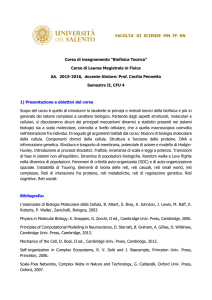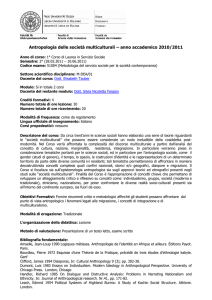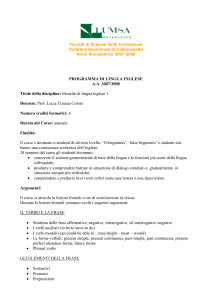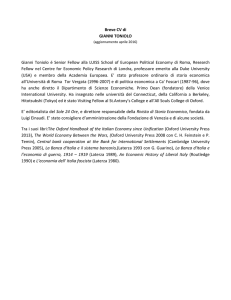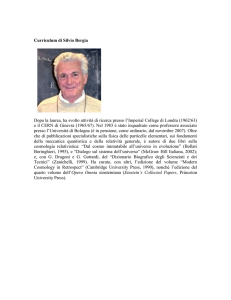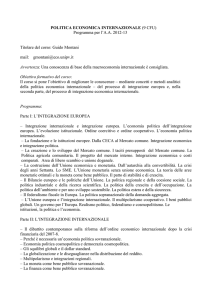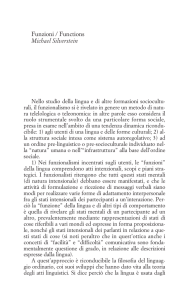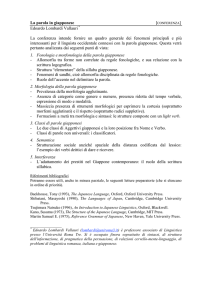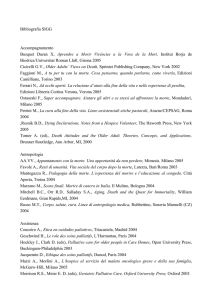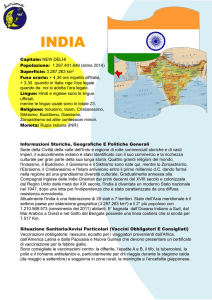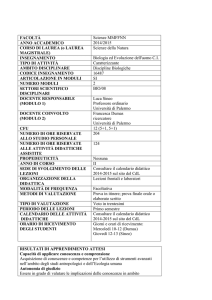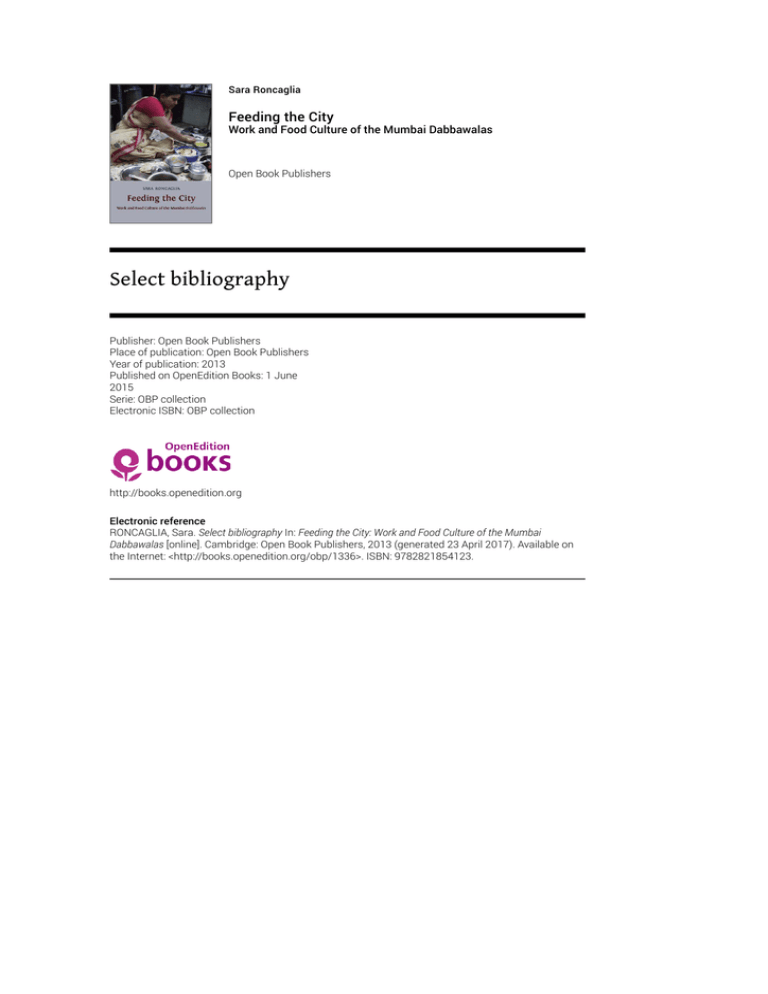
Sara Roncaglia
Feeding the City
Work and Food Culture of the Mumbai Dabbawalas
Open Book Publishers
Select bibliography
Publisher: Open Book Publishers
Place of publication: Open Book Publishers
Year of publication: 2013
Published on OpenEdition Books: 1 June
2015
Serie: OBP collection
Electronic ISBN: OBP collection
http://books.openedition.org
Electronic reference
RONCAGLIA, Sara. Select bibliography In: Feeding the City: Work and Food Culture of the Mumbai
Dabbawalas [online]. Cambridge: Open Book Publishers, 2013 (generated 23 April 2017). Available on
the Internet: <http://books.openedition.org/obp/1336>. ISBN: 9782821854123.
Select Bibliography
Abbott, Dina, “Women’s Home-Based Income-Generation as a Strategy towards
Poverty Survival: Dynamics of the ‘Khanawalli’ (Mealmaking) Activity of
Bombay” (unpublished PhD thesis, The Open University, 1994).
Achaya, K. T., “In India: civiltà pre-ariana e ariana” in Storia e geografia
dell’alimentazione, ed. by Massimo Montanari and Françoise Sabban, 2 vols.
(Turin: Utet, 2006), pp. 144-52.
—, A Historical Dictionary of Indian Food (New Delhi: Oxford University Press, 1998).
—, Indian Food: A Historical Companion (New Delhi: Oxford University Press, 1994).
Adiga, Aravind, The White Tiger (New York: Free Press, 2008).
Aime, Elena, Breve storia del cinema indiano (Turin: Lindau, 2005).
Aime, Marco, “Introduzione. Del dono e, in particolare, dell’obbligo di ricambiare i
regali”, in Marcel Mauss, Saggio sul dono. Forma e motivo dello scambio nelle società
arcaiche (Turin: Einaudi, 2002), pp. i–xxviii.
—, Eccessi di culture (Turin: Einaudi, 2004).
—, La casa di nessuno. I mercati in Africa occidentale (Turin: Bollati Boringhieri, 2002).
Aklujkar, Vidyut, “Sharing the Divine Feast: Evolution of Food Metaphor in Marathi
Sant Poetry”, in The Eternal Food: Gastronomic Ideas and Experiences of Hindus and
Buddhists, ed. by R. S. Khare (Albany: State University of New York Press, 1992),
pp. 95–116.
Al-Biruni, Alberuni’s India: An Account of the Religion, Philosophy, Literature, Geography,
Chronology, Astronomy, Customs, Laws, and Astrology of India about A.D.
,
trans. by E.C. Sachau (New Delhi: Munshiram Manoharlal, 1992).
Allovio, Stefano, “La ‘vera carne’ dei pigmei: parabole identitarie e strategie
alimentari in Africa centrale”, paper presented at the conference Piatto pieno,
piatto vuoto, prodotti locali e appetiti globali, Università Statale, Milan, 2 April 2008.
Anderson, Benedict, Imagined Communities: Reflections on the Origin and Spread of
Nationalism, rev. ed. (London: Verso, 1991).
Appadurai, Arjun, “Gastro-Politics in Hindu South Asia”, American Ethnologist,
8 (1981), 494–511.
—, “How to Make a National Cuisine: Cookbooks in Contemporary India”,
Comparative Studies in Society and History, 30 (1988), 3–24.
—, “New Logics of Violence”, Seminar, 503 (2001), available at http://www.indiaseminar.com/2001/503/503%20arjun%20apadurai.htm [accessed 19 July 2012].
Feeding the City
—, Modernity at Large: Cultural Dimensions in Globalization (Minneapolis: University
of Minnesota Press, 1996).
Arens, William, The Man-Eating Myth: Anthropology and Anthropophagy (Oxford:
Oxford University Press, 1980).
Armellini, Antonio, L’elefante ha messo le ali. L’India del XXI secolo (Milan: Egea, 2008).
Armstrong, John, “Archetypal Diasporas”, in Ethnicity, ed. by John Hutchinson and
Anthony D. Smith (Oxford: Oxford University Press, 1996), pp. 120–26.
Augé, Marc, Les Formes de l’oubli (Paris: Payot et Rivages, 1998).
Babb, Lawrence A., “The Food of the Gods in Chhattisgarh: Some Structural
Features of Hindu Ritual”, Southwestern Journal of Anthropology, 26 (1970),
287–304.
Bacchiega, Mario, Il pasto sacro (Padova: Cidema, 1971).
Balakrishnan, Natarajan and Chung-Piaw Teo, “Mumbai Tiffin (dabba) Express”,
University of Singapore, 2004, available at http://www.bschool.nus.edu.sg/staff/
bizteocp/dabba.pdf [accessed 17 July 2012].
Barnard, Alan, History and Theory in Anthropology (Cambridge: Cambridge
University Press, 2000).
Barnstone, Aliki (ed.), The Shambhala Anthology of Women’s Spiritual Poetry (Boston:
Shambhala, 2002).
Barth, Fredrik (ed.), Ethnic Groups and Boundaries (Oslo: Oslo University Press, 1969).
Bauman, Zygmunt, Globalisation: The Human Consequences (New York: Columbia
University Press, 1998).
Baumann, Gerd, The Multicultural Riddle: Rethinking National, Ethnic and Religious
Identities (London: Routledge, 1999).
Baviskar, Amita and Raka Ray (eds.), Elite and Everyman: The Cultural Politics of the
Indian Middle Classes (New Delhi: Routledge, 2011).
Beck, Ulrich, Was ist Globalisierung (Berlin: Suhrkamp Verlag, 1997).
Behal, Rana Partap and Marcel Van Der Linden (eds.), Coolies, Capital, and Colonialism:
Studies in Indian Labour History (Cambridge: Cambridge University Press, 2006).
Berger, John, Ways of Seeing (London: Penguin, 1972).
Béteille, André, Society and Politics in India: Essays in a Comparative Perspective
(New Delhi: Oxford University Press, 1992).
Bhabha, Homi K., The Location of Culture (London: Routledge, 1994).
Bhonsle, R. N., Clerks in the City of Bombay (unpublished MA thesis, University of
Bombay, 1938).
Bichi, Rita, L’intervista biografica. Una proposta metodologica (Milan: Vita e Pensiero,
2002).
Bonacich, Edna, “A Theory of Middlemen Minorities”, American Sociological Review,
38 (1973), 583–94.
—, “Middleman Minorities and Advanced Capitalism”, Ethnic Groups, 2 (1980), 311–20.
Bonte, Pierre and Michel Izard (eds.), Dictionnaire d’ethnologie et anthropologie (Paris:
Presses Universitaires de France, 1991).
Select Bibliography Borja, Jordi and Manuel Castells, Local and Global: The Management of Cities in the
Information Age (London: Earthscan, 1997).
Borsa, Giorgio, La nascita del mondo moderno in Asia orientale. La penetrazione europea
e la crisi delle società tradizionali in India, Cina e Giappone (Milan: Rizzoli, 1977).
Boudan, Christian, Géopolitique du goût (Paris: Presses Universitaires de France,
2004).
Bourdieu, Pierre, La distinction. Critique sociale du jugement (Paris: Les Éditions de
Minuit, 1979).
Braudel, Fernand, Civilisation matérielle, économie et capitalisme, XV-XVIII siècle. Les
structures du quotidien (Paris: Armand Colin, 1979).
Breman, Jan, At Work in the Informal Economy of India. A Perspective from the Bottom
Up (New Delhi: Oxford University Press, 2013).
—, Outcast Labour in Asia: Circulation and Informalisation of the Workforce at the Bottom
of the Economy (New Delhi: Oxford University Press, 2010).
—, Labour Migration and Rural Transformation in Colonial Asia (Amsterdam: Free
University Press, 1990).
—, Of Peasants, Migrants and Paupers: Rural Labour Circulation and Capitalist Production
in West Bengal (Oxford: Oxford University Press, 1985).
Brown, Patricia, Anglo-Indian Food and Customs (New Delhi: Penguin, 1998).
Burnett-Hurst, Alexander Robert, Labour and Housing in Bombay: A study in the Economic
Condition of the Wage-earning Classes of Bombay (London: King & Son, 1925).
Caccia, P., “La cucina nei libri. Brevissima storia dei ricettari di cucina italiani dalle
origini ai giorni nostri”, Eat:ing, September 2008, available at http://www.eating.net/attach/lacucinaneilibri.pdf [accessed 18 July 2012].
Caillé, Alain, Anthropologie du don. Le tiers paradigme (Paris: Desclée de Brouwer,
1994), it. trans., Il terzo paradigma. Antropologia filosofica del dono (Turin: Bollati
Boringhieri, 1998).
Callari Galli, Matilde, Mauro Ceruti and Telmo Pievani, Pensare la diversità. Per
un’educazione alla complessità umana (Rome, Meltemi, 1998).
Camporesi, Piero, Il paese della fame (Milan: Garzanti, 2000).
Cardona, Giorgio Raimondo, La foresta di piume. Manuale di etnoscienza (Rome:
Laterza, 1985).
Carter, Marina and Khal Torabully, Coolitude: An Anthology of the Indian Labour
Diaspora (London: Anthem Press, 2002).
Castells, Manuel, The Information Age: Economy, Society and Culture. The Rise of the
Network Society, vol. 1 (Oxford: Blackwell, 1996).
Castiglioni, Ida, Dal multiculturalismo al diversity management. Una ricerca empirica
sulla definizione e sulla misura della competenza interculturale nei servizi sanitari e
sociali di Milano e della sua provincia (Milan: Provincia di Milano, 2008), available
at http://www.provincia.milano.it/export/sites/default/affari_sociali/Allegati/
multiculturalismo_diversity.pdf [accessed 30 July 2012].
Cella Al-Chamali, Gabriella, Ayurveda e salute. Come curarsi con l’antica medicina
indiana (Milan: Sonzogno, 1994).
Feeding the City
Chakravarty, S., “Fast Food”, Forbes Global, 8 October 1998.
Chandavarkar, Rajnarayan, The Origins of Industrial Capitalism in India: Business
Strategies and the Working Classes in Bombay, 1900–1940 (Cambridge: Cambridge
University Press, 1994).
Chandrasekhar, Ramasastry, Dabbawallahs of Mumbai, Richard Ivey School of
Business, University of Western Ontario, 2004, available at http://beedie.sfu.
ca/files/PDF/mba-new-student-portal/2011/MBA/Dabbawallahs_of_Mumbai_
(A).pdf [accessed 28 October 2012].
Chaudhuri, Kirti Narayan, Asia before Europe: Economy and Civilisation of the Indian
Ocean from the Rise of Islam to 1750 (Cambridge: Cambridge University Press,
1991).
Chiva, Matty, Le doux et l’amer (Paris: Presses Universitaires de France, 1985).
Clifford, James, “On Ethnographic Allegory”, in Writing Culture: The Poetics and
Politics of Ethnography, ed. by James Clifford and George E. Marcus (Berkeley:
University of California Press, 1986), pp. 98–121.
Cohen, Abner, Custom and Politics in Urban Africa: A Study of Hausa Migrants in
Yoruba Towns, rev. ed. (London: Routledge, 2004).
Cologna, Daniele, Cina a Milano (Milan: Abitare Segesta, 2000).
— (ed.), Asia a Milano (Milan: Abitare Segesta, 2003).
Colombo, Enzo, “Etnografia dei mondi contemporanei. Limiti e potenzialità del
metodo etnografico nell’analisi della complessità”, Rassegna Italiana di sociologia,
42:2 (2001), 205–30.
—, Le società multiculturali (Rome: Carocci, 2002).
—, Gianmarco Navarini and Giovanni Semi, “I contorni del cibo etnico”, in Cibo,
cultura, identità, ed. by Federico Neresini and Valentina Rettore (Rome: Carocci,
2008), pp. 78–96.
— and Giovanni Semi (eds.), Multiculturalismo quotidiano. La pratica della differenza
(Milan: Franco Angeli, 2007).
Conlon, Frank F., “Dining Out in Bombay/Mumbai: An Exploration of an Indian
City’s Public Culture”, in Urban Studies, ed. by Sujata Patel and Kushal Deb
(New Delhi: Oxford University Press, 2006), pp. 390–413.
Connerton, Paul, How Societies Remember (Cambridge: Cambridge University Press,
1989).
Corbin, Alain, Le miasme et la jonquille. L’odorat et l’imaginaire social aux XVIIIè et XIXè
siècles (Paris: Flammarion, 2005).
Coser, Rose Laub, In Defense of Modernity: Role Complexity and Individual Autonomy
(Stanford, CA: Stanford University Press, 1991).
Crèvecoeur, J. Hector St John de, Letters From an American Farmer (New York: Fox,
Duffield, 1904), available at http://xroads.virginia.edu/~HYPER/crev/home.
html [accessed 30 July 2012].
Csordas, Thomas J., “Incorporazione e fenomenologia culturale”, Annuario di
Antropologia, 3 (2003), 19–42.
Cuche, Denys, La notion de culture dans les sciences sociales (Paris: Éditions La
Découverte, 2001).
Select Bibliography Dal Lago, Alessandro, Non-Persone. L’esclusione dei migranti in una società globale
(Milan: Feltrinelli, 1999).
— and De Biasi Rocco (eds.), Un certo sguardo. Introduzione all’etnografia sociale (Rome:
Laterza, 2002).
Dallapiccola, Anna L., Dictionary of Hindu Lore and Legend (London: Thames and
Hudson, 2002).
Daniélou, Alain, Mythes et Dieux de l’Inde. Le polythéisme hindou (Paris: Editions du
Rocher, 1992).
Das, N. K., “Cultural Diversity, Religious Syncretism and People of India: An
Anthropological Interpretation”, Bangladesh e-Journal of Sociology, 3:2 (2006),
available
at
http://www.bangladeshsociology.org/BEJS%203.2%20Das.pdf
[accessed 17 July 2012].
Davis, Kingsley, The Population of India and Pakistan (Princeton: Princeton University,
1951).
De Lauri, Antonio and Luigi Achilli (eds.), Pratiche e politiche dell’etnografia (Rome:
Meltemi, 2008).
Della Casa, Carlo, Il Gianismo (Turin: Bollati Boringhieri, 1993).
Demel, Walter, Wie die Chinesen gelb wurden. Ein Beitrag zur Frühgeschichte der
Rassentheorien (Bamberg: Förderverein Forschungsstiftung Überseegeschichte,
1993).
Desai, Urmila, The Ayurvedic Cookbook (New Delhi: Motilal Banarsidass, 1994).
Doniger, Wendy (ed.), The Laws of Manu (London: Penguin, 1991).
Donner, Henrike, Domestic Goddesses: Maternity, Globalization and Middle-class
Identity in Contemporary India (London: Ashgate, 2008).
Dossal, Mariam, Theatre of Conflict, City of Hope. Bombay/Mumbai, 1660 to Present
Times (New Delhi: Oxford University Press, 2010).
Douglas, Mary, Implicit Meanings (London: Routledge, 1975).
—, Purity and Danger: An Analysis of Concepts of Pollution and Taboo (London:
Routledge, 1970).
Drèze, Jean and Amartya Sen, Hunger and Public Action (New Delhi: Oxford
University Press, 1989).
Dumont, Louis, Homo hierarchicus. Le système des castes et ses implications (Paris:
Gallimard, 1966).
Dupront, Alphonse, L’Acculturazione. Per un nuovo rapporto tra ricerca storica e scienze
umane (Turin: Einaudi, 1966).
Duranti, Alessandro, Antropologia del linguaggio (Rome: Meltemi, 2000).
Dwyer, Rachel and Christopher Pinney, Pleasure and the Nation: The History, Politics
and Consumption of Public Culture in India (New Delhi: Oxford University Press,
2001).
Ehrenreich, Barbara and Arlie Russell Hochschild, Global Woman: Nannies, Maids,
and Sex Workers in the New Economy (London: Granta, 2003).
Eliade, Mircea, Techniques du Yoga (Paris: Gallimard, 1948).
—, Yoga, Immortality and Freedom (London: Routledge, 1958).
Feeding the City
Elias, Norbert, Über den Prozess der Zivilisation. I. Wandlungen des Verhaltens in den
weltlichen Oberschichten des Abendlandes (Basel: Verlag Haus zum Falken, 1939).
Enthoven, Reginald E., “Kojah”, in The Tribes and Castes of Bombay, ed. by Reginal E.
Enthoven, 3 vols. (Bombay: Government Central Press, 1921), vol. 2, pp. 218-30.
Epstein, A. L., Ethos and Identity: Three Studies in Ethnicity (London: Tavistock, 1981).
Fabietti, Ugo, “Diversità delle culture e disagio della contemporaneità”, I Quaderni
del CREAM, 9 (2009), available at http://www.unimib.it/upload/aa_fabietti.pdf
[accessed 30 July 2012].
—, L’identità etnica. Storia e critica di un concetto equivoco (Rome: NIS, 1995).
—, Storia dell’antropologia (Bologna: Zanichelli, 1991).
— and Francesco Remotti (eds.), Dizionario di antropologia (Bologna: Zanichelli, 1997).
— and Vincenzo Matera, Etnografia. Scritture e rappresentazioni dell’antropologia
(Rome: Carocci, 1997).
Faeta, Francesco, Strategie dell’occhio. Saggi di etnografiavisiva (Milan: Franco Angeli,
2003).
Falzon, Mark-Anthony, Cosmopolitan Connections: The Sindhi Diaspora, 1860–2000
(New Delhi: Oxford University Press, 2005).
Fay, Peter Ward, The Opium War 1840–1842 (Chapel Hill: University of North
Carolina Press, 1975).
Featherstone, Mike (ed.), Global Culture (London: Sage, 1990).
Feldhaus, Anne, Connected Places: Region, Pilgrimage, and Geographical Imagination in
India (New York: Palgrave Macmillan, 2003).
Ferrozzi, Claudio and Roy Shapiro, Dalla logistica al Supply Chain Management. Teorie
ed esperienze (Turin: Isedi, 2000).
Filoramo, Giovanni (ed.), Storia delle religioni IV: Religioni dell’India e dell’Estremo
Oriente (Rome: Laterza, 1996).
Fiorani, Eleonora, Selvaggio e domestico. Tra antropologia, ecologia ed estetica (Padua:
Muzzio, 1993).
Fischer, Michael M. J., “Ethnicity and the Post-Modern Arts of Memory”, in Writing
Culture: The Poetics and Politics of Ethnography, ed. by James Clifford and George
E. Marcus (Berkeley: University of California Press, 1984), pp. 194–233.
Fischler, Claude, L’Homnivore (Paris: Odile Jacob, 1990).
Flood, Gavin, An Introduction to Hinduism (Cambridge: Cambridge University Press,
1996).
Foglio, Antonio, Il marketing agroalimentare. Mercato e strategie di commercializzazione
(Milan: Franco Angeli, 2007).
Ford-Grabowsky, Mary, Sacred Voices: Essential Women’s Wisdom through the Ages
(New York: HarperCollins, 2002).
Foucault, Michel, Naissance de la biopolitique. Cours au collège de France, 1978–1979
(Paris: Gallimard-Seuil, 2004), it. trans., Nascita della biopolitica. Corso al Collége de
France, 1978–1979 (Milan: Feltrinelli, 2005).
Frawley, David, Yoga and Ayurveda: Self-Healing and Self-Realisation (Delhi: Motilal
Banarsidass, 2000).
Select Bibliography Frazer, James George, The Golden Bough: A Study in Magic and Religion (New York:
Macmillan, 1922).
Freed, Stanley A., “Caste Ranking and the Exchange of Food and Water in a North
Indian Village”, Anthropological Quarterly, 43 (1970), 1–13.
Fyzee, Asaf A. A., “Bohoras”, in Encyclopaedia of Islam, 12 vols. (Leiden: E. J. Brill,
1960–2005), vol. 1, pp. 1254-55.
Gallissot, René, Mondher Kilani and Annamaria Rivera (eds.), L’imbroglio etnico in
quattordici parole-chiave (Bari: Dedalo, 2001).
Ganguly-Scrase, Ruchira and Timothy J. Scrase, Globalisation and the Middle Classes
in India: The Social and Cultural Impact of Neoliberal Reforms (London: Routledge,
2008).
Garruccio, Roberta (ed.), Le grida. Memoria, epica, narrazione del parterre di Milano
(Soveria Mannelli: Rubbettino, 2005).
—, Minoranze in affari. La formazione di un banchiere: Otto Joel (Soveria Mannelli:
Rubbettino, 2002).
Geertz, Clifford, “The Uses of Diversity”, in Tanner Lectures on Human Values, ed. by
Sterling M. McMurrin, vol. 7 (Salt Lake City, UT: University of Utah Press, 1986),
pp. 253-75.
—, Interpretation of Cultures (New York: Basic Books, 1973).
Giddens, Anthony, The Consequences of Modernity (Stanford, CA: Stanford University
Press, 1990).
Giglioli, Pier Paolo, “Una nuova rivista”, Etnografia e ricerca qualitativa, 1 (2008), 3–8.
Glazer, Nathan, We Are All Multiculturalists Now (Cambridge, MA: Harvard
University Press, 1998).
— and Daniel P. Moynihan, “Why Ethnicity?”, Commentary, 58 (1974), 33–39.
Godbout, Jacques T., L’esprit du don (Paris: Editions la découverte, 1992), it. trans.
Lo spirito del dono (Turin: Bollati Boringhieri, 2002).
Godelier, Maurice, L’énigme du don (Paris: Fayard, 1996).
Goffman, Erving, Frame Analysis: An Essay on the Organization of Experience
(Cambridge, MA: Harvard University Press, 1974).
—, Interaction Ritual: Essays on Face-to-Face Behavior (New York: Anchor Books, 1967).
Gombrich, Richard, Theravada Buddhism: A Social History from Ancient Benares to
Modern Colombo (New York: Routledge, 1988).
Goodenough, Ward, “Toward A Working Theory of Culture”, in Assessing
Cultural Anthropology, ed. by Robert Borofsky (New York: McGraw-Hill, 1994),
pp. 262–73.
Goody, Jack, “Culture and its Boundaries: A European View”, in Assessing
Cultural Anthropology, ed. by Robert Borofsky (New York: McGraw-Hill, 1994),
pp. 250–61.
—, Capitalism and Modernity: The Great Debate (Cambridge: Polity Press, 2004), it.
trans. Capitalismo e modernità. Il grande dibattito (Milan: Cortina, 2005).
Goswami, Manu, Producing India: From Colonial Economy to National Space (Chicago:
University of Chicago Press, 2004).
Feeding the City
Grendi, Edoardo (ed.), L’antropologia economica (Turin: Einaudi, 1972).
Grignaffini, Giorgio, “Estesia e discorsi sociali: per una sociosemiotica della
degustazione del vino”, in Gusti e disgusti. Sociosemiotica del quotidiano, ed. by
Eric Landowski and José L. Fiorin (Turin: Testo & Immagine, 2000), pp. 214–32.
Guha, Ramachandra, India After Gandhi: The History of the World’s Largest Democracy
(London: Macmillan, 2007).
Guigoni, Alessandra (ed.), Foodscapes. Stili, mode e culture del cibo oggi (Monza:
Polimetrica, 2004).
—, “L’alimentazione mediterranea tra locale e globale, tra passato e presente”, in
Saperi e sapori del Mediterraneo, ed. by Radhouan Ben Amara and Alessandra
Guigoni (Cagliari: AM&D, 2006), pp. 81–92.
Gupta, Akhil and James Ferguson “Beyond ‘Culture’: Space, Identity, and the
Politics of Difference”, Cultural Anthropology, 7:1 (1992), 6–32.
Gupta, Dipankar (ed.), Social Stratification (New Delhi: Oxford University Press,
1991).
Gusman, Alessandro, Antropologia dell’olfatto (Rome: Laterza, 2004).
Gutmann, Amy (ed.), Multiculturalism: Examining the Politics of Recognition
(Princeton, NJ: Princeton University Press, 1994).
Halbwachs, Maurice, Les cadres sociaux de la mémoire (Paris: Presses Universitaires
de France, 1952), it. trans., La memoria collettiva (Milan: Unicopli, 1987).
Hannerz, Ulf, Cultural Complexity: Studies in the Social Organization of Meaning
(New York: Columbia University Press, 1992).
—, Transnational Connections: Culture, People, Places (London: Routledge, 1996).
Hansen, Thomas Blom, Wages of Violence: Naming and Identity in Postcolonial Bombay
(Princeton: Princeton University Press, 2001).
Harris, Marvin, Good to Eat: Riddles of Food and Culture (Long Grove, IL: Waveland,
1985).
Henley, Paul, “Film-making and Ethnographic Research”, in Image-based Research:
A Sourcebook for Qualitative Researchers, ed. by Jon Prosser (London: Routledge
Falmer, 2003), pp. 42–59.
Héritier, Françoise, Masculin-Féminin. La pensée de la différence (Paris: Éditions Odile
Jacob, 1996).
Herzfeld, Michael, Cultural Intimacy: Social Poetics in the Nation-State (New York:
Routledge, 1997).
Hobsbawm, Eric and Terence Ranger (eds.), The Invention of Tradition (Cambridge:
Cambridge University Press, 1983).
Hofstede, Geert and Gert J. Hofstede, Cultures and Organizations: Software of the
Mind, 2nd ed. (New York: McGraw-Hill, 2005).
Huyssen, Andreas, “En busca del tiempo futuro”, Puentes, 1:2 (2000), 12–29.
Inden, Ronald, Imagining India (Oxford: Blackwell, 1992).
International Commission for the Future of Food and Agriculture, Manifesto on the
Future of Food (Florence: Arsia, 2006), available at http://commissionecibo.arsia.
toscana.it/UserFiles/File/Commiss%20Intern%20Futuro%20Cibo/cibo_ing.pdf
[accessed 19 July 2012].
Select Bibliography Irudaya Rajan, Sebastian, Catholics in Bombay: A Historical-Demographic Study of
the Roman Catholic Population in the Archdiocese of Bombay (Shillong: Vendrame
Institute, 1993).
Iversen, Vegard and P. S. Raghavendra, “What the Signboard Hides: Food, Caste
and Employability in Small South Indian Eating Places”, Contributions to Indian
Sociology, 40 (2006), 311–41. DOI: 10.1177/006996670604000302
Jacobs, Jane, The Death and Life of Great American Cities (New York: Random House,
1961).
Jaffrelot, Christoph and Peter van der Veer, Patterns of Middle Class Consumption in
India and China (New Delhi: Sage, 2008).
Kakar, Sudhir and Katharina Kakar, The Indians: Portrait of a People (New Delhi:
Penguin, 2007).
Kamat, Manjiri N., Mumbai-Past and Present: Historical Perspectives and Contemporary
Challenges (Mumbai: Nehru Centre and Indus Source Books, 2013).
Karaka, Dosabhai Framji, History of Parsees; Including their Manners, Customs,
Religion and Present Position (London: Macmillan, 1884).
Karve, Irawati, “On the Road: A Maharashtrian Pilgrimage”, in The Experience of
Hinduism: Essays on Religion in Maharashtra, ed. by Eleanor Zelliot and Maxine
Berntsen (New York: State University of New York Press, 1988), pp. 142–73.
Katz, Nathan, Who Are the Jews of India? (Berkeley: University of California Press,
2000).
Khare, Ravindra S. (ed.), Caste, Hierarchy and Individualism: Indian Critiques of Luis
Dumont’s Contributions (New Delhi: Oxford University Press, 2006).
—, The Eternal Food: Gastronomic Ideas and Experiences of Hindus and Buddhists, ed. by
R. S. Khare (Albany: State University of New York Press, 1992).
Kilani, Mondher, “L’ideologia dell’esclusione. Note su alcuni concetti-chiave”, in
L’imbroglio etnico in quattordici parole-chiave, ed. by René Gallissot, Mondher
Kilani and Annamaria Rivera (Bari: Dedalo, 2001), pp. 9–36.
—, L’Invention de l’autre. Essais sur le discours anthropologique (Paris: Payot et Rivages,
1994).
King, Niloufer Ichaporia, My Bombay Kitchen: Traditional and Modern Parsi Home
Cooking (Berkeley: University of California Press, 2007).
Kulke, Eckehard, The Parsees in India: a Minority as an Agent of Social Change
(New Delhi: Vikas, 1978).
Kydd, J. C., “The First Indian Factories Act (Act XV of 1881)”, The Calcutta Review,
293 (1918), 279–92.
Le Breton, David, La Saveur du Monde: une anthropologie des sens (Paris: Editions
Métailié, 2006).
Le Guérer, Annick, Les pouvoirs de l’odeur (Paris: Odile Jacob, 1998).
Lévi-Strauss, Claude, “The Culinary Triangle”, in Food and Culture: A Reader, ed.
by Carole Counihan and Penny Van Esterik (New York: Routledge, 1997),
pp. 36–43.
—, L’Origine des manières de table (Paris: Plon, 1968).
Feeding the City
Lévi, Sylvain, La Doctrine du sacrifice dans les Brahmanas (Paris: Ernest Leroux,
1898).
Light, Ivan and Edna Bonacich, Immigrant Entrepreneurs: Koreans in Los Angeles,
1965–1982 (Berkeley: University of California Press, 1988).
Livi Bacci, Massimo, Popolazione e alimentazione. Saggio sulla storia demografica europea
(Bologna: Il Mulino, 1993).
Lutz, Catherine A. and Lila Abu-Lughod (eds.), Language and the Politics of Emotion
(Cambridge: Cambridge University Press, 1990).
Machado, Felix, Jnaneshvari: Path to Liberation (Mumbai: Somaiya, 1998).
Mahajan, Gurpreet, “Indian Exceptionalism or Indian Model: Negotiating
Cultural Diversity and Minority Rights in a Democratic Nation-State”, in
Multiculturalism in Asia, ed. by Will Kymlicka and Baogang He (Oxford: Oxford
University Press, 2005), pp. 288–313.
Maifreda, Germano and Sara Roncaglia (eds.), Narrare la formazione. Grande impresa
e sindacato (Milan: Guerini, 2005).
Malamoud, Charles, Cooking the World: Ritual and Thought in Ancient India (Delhi:
Oxford University Press, 1996).
Mallik, U. K. and D. Mukherjee, “Sigma 6 Dabbawalas of Mumbai and their
Operations Management: An Analysis”, The Management Accountant, 42 (2007),
386–88.
Manekshaw, Bhicoo J., Parsi Food and Customs (New Delhi: Penguin, 1996).
Marano, Francesco, Camera etnografica. Storie e teorie di antropologia visuale (Milan:
Franco Angeli, 2007).
Marcus, George E., “After the Critique of Ethnography: Faith, Hope and Charity,
but the Greatest of these is Charity”, in Assessing Cultural Anthropology, ed. by
Robert Borofsky (New York: McGraw-Hill, 1994), p. 40–53.
—, and Michael M. J. Fischer, Anthropology as Cultural Critique: An Experimental
Moment in the Human Sciences (Chicago: University of Chicago Press, 1986).
Marriot, McKim (ed.), India through Hindu Categories (New Delhi: Thousand Oaks;
London: Sage, 1992).
—, “Caste Ranking and Food Transactions: A Matrix Analysis”, in Milton Singer and
Bernard S. Cohn, Structure and Change in Indian Society (Chicago: Aldine, 1968),
pp. 133–72.
de Martino, Gianni, Odori. Entrate in contatto con il quinto senso (Melzo: Apogeo, 1997).
Masselos, Jim, “Defining Moments/Defining Events: Commonalities of Urban
Life”, in Bombay and Mumbai: The City in Transition, ed. by Sujata Patel and Jim
Masselos (New Delhi: Oxford University Press, 2003), pp. 31–52.
—, The City in Action: Bombay Struggles for Power (New Delhi: Oxford University
Press, 2007).
Massey, Douglas S., Joaquin Arango, Graeme Hugo, Ali Kouaouci, Adela Pellegrino
and J. Edward Taylor, Worlds in Motion: Understanding International Migration at
the End of the Millennium (Oxford: Oxford University Press, 1998).
Mauss, Marcel, Esquisse d’une théorie générale de la magie (Paris: Presses Universitaires
de France, 1902).
Select Bibliography —, The Gift: The Form and the Reason for Exchange in Archaic Societies (London:
Routledge, 1990), it. trans., Saggio sul dono. Forma e motivo dello scambio nelle
società arcaiche (Turin: Einaudi, 2002).
Mayer, Adrian C., Caste and Kinship in Central India (Berkeley: University of
California Press, 1960).
Mayer, Hans, Auβenseiter (Frankfurt am Main: Suhrkamp, 1975).
McGrew, Anthony, “A Global Society”, in Modernity and its Futures, ed. by
Stewart Hall, David Held and Anthony McGrew (Cambridge: Polity Press,
1992), pp. 62–113.
Mead, Margaret, “Visual Anthropology in a Discipline of Words”, in Principles of
Visual Anthropology, ed. by Paul Hockings (Berlin: Mouton de Gruyter, 1995),
pp. 3–10.
Mehta, Suketu, Maximum City: Bombay Lost and Found (London: Headline Review,
2005).
Memmi, Albert, Il razzismo (Genoa: Costa e Nolan, 1989).
Menon, Meena and Neera Adarkar, One Hundred Years One Hundred Voices: The
Millworkers of Girangaon: An Oral History (New Delhi: Seagull Books, 2004).
Miavaldi, Isabella, La cucina ayurvedica (Milan: Xenia, 1999).
Michaels, Walter Benn, The Trouble with Diversity: How We Learned to Love Identity
and Ignore Inequality (New York: Metropolitan, 2006).
Minkowski, Eugène, Vers une cosmologie. Fragments philosophiques (Paris: AubierMontaigne, 1936), it. trans., Verso una cosmologia (Turin: Einaudi, 2005).
Mintz, Sidney W., Sweetness and Power: The Place of Sugar in Modern History
(New York: Viking, 1985).
Montanari, Massimo and Françoise Sabban, Storia e geografia dell’alimentazione,
2 vols. (Turin: Utet, 2004).
Morin, Edgar, Introduction à la pensée complexe (Paris: ESF Éditeur, 1990), it. trans.,
Introduzione al pensiero complesso (Milan: Sperling and Kupfer, 1993).
Morris, Morris D., “The Emergence of an Industrial Labour Force in India”, in
Social Stratification, ed. by Dipankar Gupta (New Delhi: Oxford University Press,
1991), pp. 231–47.
Moulier Boutang, Yann, De l’Esclavage au salariat: Economie historique du salariat bridé
(Paris: Presses Universitaires de France, 1998).
Muzzarelli, Maria Guiseppina and Fiorenza Tarozzi, Donne e cibo. Una relazione nella
storia (Milan: Bruno Mondadori, 2003).
Nandy, Ashis, “The Twilight of Certitudes: Secularism, Hindu Nationalism and
Other Masks of Deculturation”, Postcolonial Studies, 1 (1998), 283–98.
Nestle, Marion, Food Politics: How The Food Industry Influences Nutrition and Health
(Berkeley: University of California Press, 2002).
Nussbaum, Martha C., The Clash Within: Democracy, Religious Violence, and India’s
Future (Cambridge, MA: Harvard University Press, 2007).
Olivelle, Patrick, “Food in India”, Journal of Indian Philosophy, 23 (1995), 367–80.
Pandit, Shrinivas, Dabawalas (New Delhi: Tata McGraw-Hill, 2007).
Feeding the City
Panikkar, Raimon, The Vedic Experience: Mantramanjari (New Delhi: Sanctum, 1977).
Paolini, David, Tullio Seppilli and Alberto Sorbini, Migrazioni e culture alimentari
(Foligno: Editoriale Umbra, 2002).
Parekh, C. S., The Dabbawallas of Mumbai (unpublished PhD thesis, Narsee Monjee
College of Commerce and Economics, Mumbai, 2005).
Passerini, Luisa, Storia e soggettività. Le fontiorali, la memoria (Florence: La Nuova
Italia, 1988).
Patel, Raj, Stuffed and Starved: The Hidden Battle for The World Food System (New York:
Melville House, 2008).
Patel, Sujata and Alice Thoner (eds.), Bombay: Mosaic of Modern Culture (New Delhi:
Oxford University Press, 1995).
— and Jim Masselos (eds.), Bombay and Mumbai: The City in Transition (New Delhi:
Oxford University Press, 2003).
Pavanello, Deborah, Cibo per l’anima. Il significato delle prescrizioni alimentari nella
grandi religioni (Rome: Mediterranee, 2006).
Pennacini, Cecilia, Filmare le culture. Un’introduzione all’antropologia visiva (Rome:
Carocci, 2005).
Percot, Marie, “Dabbawalas, Tiffin Carriers of Mumbai: Answering a Need for
Specific Catering”, HAL: Sciences de l’Hommeet de la Société, 2005, available at
http://halshs.archives-ouvertes.fr/docs/00/03/54/97/PDF/DABBA.pdf [accessed
10 August 2012].
Petrini, Carlo, Buono, pulito e giusto. Principi di una nuova gastronomia (Turin: Einaudi,
2005).
Piano, Stefano, “Lo hinduismo II. La prassi religiosa”, in Hinduismo, ed. by Giovanni
Filoramo (Rome: Laterza, 2002), pp. 171-246.
Piantelli, Mario, “Lo hinduismo. I. Testi e dottrine”, in Hinduismo, ed. by Giovanni
Filoramo (Rome: Laterza, 2002), pp. 61-170.
Piasere, Leonardo, L’etnografo imperfetto. Esperienza e cognizione in antropologia
(Rome: Laterza, 2002).
Pirenne, Henri, Les villes du moyen-âge. Essai d’histoire économique et sociale (Brussels:
Lamertin, 1927).
Plattner, Felix Alfred, Christian India (London: Thames and Hudson, 1957).
Portes, Alejandro (ed.), The Economic Sociology of Immigration: Essays on Networks,
Ethnicity, and Entrepreneurs (New York: Russell Sage Foundation, 1995).
Poulain, Jean-Pierre, Sociologies de l’alimentation, les mangeurs et l’espace social
alimentaire (Paris: Presses Universitaires de France, 2002).
Pratt, Mary Louise, “Linguistic Utopias”, in The Linguistics of Writing: Arguments
Between Language and Literature, ed. by Nigel Fabb, Derek Attridge, Alan Durant
and Colin MacCabe (Manchester: Manchester University Press, 1987), pp. 48–66.
Punekar, Vinaja B., The Son Kolis of Bombay (Bombay: Popular Book Depot, 1959).
Quaranta, Ivo, “Thomas Csordas: il paradigma dell’incorporazione”, in Discorsi
sugli uomini. Prospettive antropologiche contemporanee, ed. by Vincenzo Matera
(Turin: Utet, 2008), pp. 49–71.
Select Bibliography Rajalakshmi, U. B., Udupi Cuisine (Bangalore: Prism, 2000).
Ram-Prasad, Chakravarthi, “India’s Middle Class Failure”, Prospect, 30 September
2007.
Ramanujan, Attipat Krishnaswami, “Food for Thought: Toward an Anthology of
Food Images”, in The Eternal Food: Gastronomic Ideas and Experiences of Hindus
and Buddhists, ed. by Ravindra S. Khare (Albany: State University of New York
Press, 1992), pp. 221–50.
Ranade, Mahadeo Govind, The Rise of Maratha Power (Bombay: Bombay University
Press, 1961).
Ranade, Sanjay, “The Kolis of Mumbai at Crossroads: Religion, Business and
Urbanisation in Cosmopolitan Bombay Today”, paper presented at the 17th
Biennial Conference of the Asian Studies Association of Australia, Monash
University, Melbourne, 1–3 July 2008, available at http://artsonline.monash.edu.
au/mai/files/2012/07/sanjayranade.pdf [accessed 20 July 2012].
Rane, Kavita, An Observational Study of Communication Skills Involving Fish Retailers
in Mumbai (unpublished MA thesis, University of Mumbai, 2005).
Rao, Madhugiri Saroja A., “Conservation and Change in Food Habits among
Migrants in India: A Study in Gastro-dynamics”, in Aspects in South Asian Food
System: Food, Society and Culture, ed. by Ravindra S. Khare and M. S. A. Rao
(Durham, NC: Carolina Academic Press, 1985), pp. 121–40.
Remotti, Francesco, “Cultura”, in Enciclopedia delle Scienze Sociali, vol. 2 (Rome:
Istituto Enciclopedico Italiano, 1992), pp. 641–60.
—, Contro l’identità (Rome: Laterza, 1996).
—, Cultura. Dalla complessità all’impoverimento (Rome: Laterza, 2011).
Rivera, Annamaria, “Cultura”, in L’imbroglio etnico in quattordici parole-chiave, ed. by
René Gallissot, Mondher Kilani and Annamaria Rivera (Bari: Dedalo, 2001),
pp. 75–106.
—, “Neorazzismo”, in L’imbroglio etnico in quattordici parole-chiave, ed. by René
Gallissot, Mondher Kilani and Annamaria Rivera (Bari: Dedalo, 2001), pp. 279–
309.
Rotilio, Giuseppe, “L’alimentazione degli ominidi fino alla rivoluzione agropastorale
del neolitico”, in In carne e ossa. DNA, cibo e culture dell’uomo preistorico, ed. by
Gianfranco Biondi, Fabio Martini, Olga Rickards and Giuseppe Rotilio (Bari:
Laterza, 2006), pp. 83–145.
Roy, Arundhati, “War Is Peace”, Outlook India, 29 October 2001, available at
http://www.outlookindia.com/article.aspx?213547 [accessed 17 July 2012].
— and David Barsamian, The Checkbook and the Cruise Missile: Conversations with
Arundhati Roy (Cambridge, MA: South End Press, 2004).
Rushdie, Salman, Imaginary Homelands: Essays and Criticism 1981–1991 (New York:
Viking, 1991).
Russell, Robert Vane, The Tribes and Castes of the Central Provinces of India, 4 vols.
(London: Macmillan, 1916; repr. New Delhi: Asian Educational Services, 1993).
Russell, Sharman Apt, Hunger: An Unnatural History (New York: Perseus, 2006).
Feeding the City
Sabharwal, Gopa, Ethnicity and Class: Social Divisions in an Indian City (New Delhi:
Oxford University Press, 2006).
Salsano, Alfredo, Il dono nel mondo dell’utile (Turin: Bollati Boringhieri, 2008).
Sapelli, Giulio, “Mitobiografia per le scienze sociali”, in Giannino Bassetti:
L’imprenditore raccontato, ed. by R. Garruccio and G. Maifreda (Soveria Mannelli:
Rubbettino, 2004).
—, Antropologia della globalizzazione (Milan: Bruno Mondadori, 2002).
Sapir, Edward, Culture, Language and Personality: Selected Essays (Berkeley: University
of California Press, 1949).
Sardar, Ziauddin and Borin Van Loon, Introducing Cultural Studies (Cambridge:
Icon Books, 1999).
Sardesai, Govind Sakharam, New History of Marathas (Bombay: Bombay University
Press, 1946).
Sarkar, Haribishnu and B. M. Pande, Symbols and Graphic Representations in Indian
Inscriptions (Delhi: Aryan, 1999).
Sassen, Saskia, Cities in a World Economy (Thousand Oaks, CA: Pine Forge Press,
1994).
—, The Global City: New York, London, Tokyo (Princeton: Princeton University Press,
1991).
Sayad, Abdelmalek, L’immigration ou le paradoxe de l’altèrité (Brussels: De Boeck
Université, 1991).
Schein, Edgar H., The Corporate Culture Survival Guide (San Francisco: Jossey-Bass,
1999).
Segbers, Klaus (ed.), The Making of Global City Regions: Johannesburg, Mumbai/Bombay,
Sao Paulo and Shanghai (Baltimore, MD: Johns Hopkins University Press, 2007).
Senge, Peter M., The Fifth Discipline: The Art & Practice of Learning Organization
(Danvers, MA: Doubleday, 1990).
Seppilli, Tullio, “Per un’antropologia dell’alimentazione. Determinazioni, funzioni
e significati psico-culturali della risposta sociale a un bisogno biologico”,
La ricerca folklorica, 30 (October 1994), 8–9.
Serventi, Silvano and Françoise Sabban, La pasta. Storia e cultura di un cibo universale
(Rome: Laterza, 2000).
Shapiro Anjaria, Jonathan, “Street Hawkers and Public Space in Mumbai”, Economic
and Political Weekly, 27 May 2006, pp. 2140–46.
Shiva, Vandana, Earth Democracy: Justice, Sustainability, and Peace (Cambridge, MA:
South End Press, 2005).
—, India Divided: Diversity and Democracy Under Attack (New York: Seven Stories
Press, 2005).
—, Water Wars: Privatization, Pollution, and Profit (Cambridge, MA: South End Press,
2004).
Sibilla, Paolo, La sostanza e la forma. Introduzione all’antropologia economica (Turin:
Utet, 1996).
Singh, Rashmi Uday, Times Food Guide Mumbai 2007 (New Delhi: The Times of India,
2007).
Select Bibliography Smith, Brian K., “Eaters, Food and Social Hierarchy in Ancient India: A Dietary
Guide to a Revolution of Values”, Journal of the American Academy of Religion,
58 (1990), 177–206.
—, Classifying the Universe: The Ancient India Varna System and the Origins of Caste
(New York: Oxford University Press, 1949).
Smith, David, Hinduism and Modernity (Oxford: Blackwell, 2003).
Solinas, Pier Giorgio, “Soggetti estesi e relazioni multiple. Questioni di
antropologia indianista”, Società Degli Individui, 25 (2006), available at http://
www.antropologica.unisi.it/images/a/ad/L’in-dividuo.pdf [accessed 29 June
2012]. DOI: 10.1400/65102
Sorcinelli, Paolo, Gli italiani e il cibo. Dalla polenta ai cracker (Milan: Bruno Mondadori,
1999).
Steel, Carolyn, Hungry City: How Food Shapes our Lives (London: Chatto&Windus,
2008).
Stoller, Paul, The Taste of Ethnographic Things: The Senses in Anthropology (Philadelphia:
University of Pennsylvania Press, 1992).
Taguieff, Pierre-André, La Force du prejudge. Essai sur le racisme et ses doubles (Paris:
La Découverte; Armillaire, 1988).
Taher, Nasreen, Impeccable Logistics and Supply Chain Management: A Case of Mumbai
Dabbawallahs (Hyderabad: Icfai University Press, 2007).
Tedlock, Dennis, The Spoken Word and the Work of Interpretation (Philadelphia:
University of Pennsylvania Press, 1983), it. trans., Verba Manent. L’interpretazione
del parlato (Naples: L’Ancora del Mediterraneo, 2002).
Thapar, Romila, “Syndicated Moksha?”, Seminar, 313 (1985), 14–22.
Tindall, Gillian, City of Gold: The Biography of Bombay (New Delhi: Penguin, 1982).
Tinker, Irene, Street Foods: Urban Food and Employment in Developing Countries
(New York: Oxford University Press, 1997).
Torri, Michelguglielmo, Storia dell’India (Bari: Laterza, 2000).
Van Binsbergen, Wim M. J., “Cultures Do Not Exist: Exploding Self-Evidences in
the Investigation of Interculturality”, Quest: An African Journal of Philosophy,
13 (1999), 37–144.
Van Gennep, Arnold, Les Rites de Passage (Paris: Picard, 1909).
Van Wersch, Herbert W. M., The Bombay Textile Strike,
University Press, 1992).
–
(New Delhi: Oxford
Varma, Pavan K., The Great Indian Middle Class (New Delhi: Penguin, 1998).
Varma, Rashmi, “Provincializing the Global City: From Bombay to Mumbai”, Social
Text, 22:4 (2004), 65–89.
Vicziany, Marika and Jayant Bapat, “Mumbadevi and the Other Mother
Goddesses in Mumbai”, Modern Asian Studies, 43 (2009), 511–41. DOI: 10.1017/
S0026749X0700340X
Visconti, Luca, “Diversity management e lavoro straniero: vantaggio competitivo o
cerimonia?”, in Diversity management e società multiculturale. Teorie e prassi, ed. by
Luigi Mauri and Luca Visconti (Milan: Franco Angeli, 2004), pp. 11–30.
Feeding the City
Von Braun, Joachim, The World Food Situation: New Driving Forces and Acquired
Actions (Washington, DC: International Food Policy Research Institute, 2007),
available at http://www.ifad.org/events/lectures/ifpri/pr18.pdf [accessed 19 July
2012].
Wagner, Roy, The Invention of Culture (Chicago, IL: University of Chicago Press,
1981).
Walker Bynum, Caroline, Holy Feast and Holy Fast: The Religious Significance of Food
to Medieval Women (Berkeley: University of California Press, 1987).
Watson, James L. and Melissa L. Caldwell (eds.), The Cultural Politics of Food and
Eating: A Reader (London: Blackwell, 2005).
Weber, Max, The Sociology of Religion, rev. ed. (London: Methuen, 1965).
West Rudner, David, Caste and Capitalism in Colonial India: The Nattukottai Chettiars
(Berkeley: University of California Press, 1994).
Wilk, Richard, Home Cooking in the Global Village: Caribbean Food from Buccaneers to
Ecotourists (Oxford: Berg, 2006).
— and Lisa Cliggett, Economies and Cultures: Foundations of Economic Anthropology
(Boulder, CO: Westview Press, 1996).
Wittgenstein, Ludwig, “Bemerkungen über Frazers The Golden Bough”, Synthese,
17 (1967), 233–53.
Wolpert, Stanley, A New History of India (Oxford: Oxford University Press, 1977).
Wujastyk, Dominik (ed.), The Roots of Ayurveda: Selections from Sanskrit Medical
Writings (London: Penguin, 2003).
Yagnik, Acyuta and Suchitra Sheth, The Shaping of Modern Gujarat: Plurality, Hindutva,
and Beyond (New Delhi: Penguin, 2005).
Zachariah, Kunniparampil Curien, Migrants in Greater Bombay (London: Asia
Publishing House, 1968).
Zangwill, Israel, The Melting Pot (Charleston: Biblio Bazaar, 2008).
Zenner, Walter, “Middleman Minority Theories: A Critical Review”, in Sourcebook
on the New Immigration, ed. by Roy S. Bryce-Laporte, Delores M. Mortimer and
Stephen Robert Couch (New Brunswick, NJ: Transaction Books, 1980), pp. 413–25.

